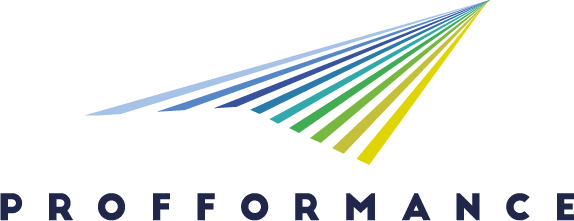debuso
debuso - Design Business Society - initiative for autonomous, inclusive, creative and empowering learning
- 01 - Education
- 02 - Arts and humanities
- 03 – Social sciences, journalism and information
- 04 – Business, administration and law
2. Innovative teaching and learning
- Student partnerships/engagement in the teaching and learning practice
- Innovative multidisciplinary projects for students from different faculties
- Entrepreneurship projects, work-based learning
- Real learning environments, experiments and field work through real-world projects
The Department of Marketing and Design Communications (MMDC) at Corvinus University of Budapest is an innovative educational and research community integrating real-life projects, interdisciplinary collaboration, and novel methodologies. Focusing on three subject areas—marketing communications, design communication, and identity development—it connects theory and practice through creative, action-oriented teaching and research. MMDC engages their students as partners, contributing to scholarly works and innovative projects that develop professional autonomy, creativity, and excellence. Their innovations include applying their unique locally developed know-hows such as designcommunication and genial rhetorics. MMDC’s activities include experiential and empowering learning projects such as wikinomic collaborations, analog infographic installations, an Integrated Marketing Communications (IMC) Festival organized by students, or a video competition organized in the framework of the EU H2020 RiConfigure initiative to popularize the Quadruple Helix innovation model. These initiatives highlight MMDC’s unique crossover pedagogy, blending equal teacher-student collaboration, co-teaching, and co-creation. Its programs strengthen professional autonomy, critical thinking, and creativity while emphasizing skills for digital transformation, sustainable orientation, and creative design-driven leadership skills, several times rewarded in national and international competitions. With its newly developed “Design, Business, Society” MSc program launching in 2025/26, MMDC continues to innovate education practices. It integrates diverse disciplines, facilitates equal partnerships, and equips students with future-ready skills. Its work demonstrates that education can be a living laboratory for professional development, creative thinking, and socially impacting outcomes. MMDC’s recent activities in numbers: 7 full-time faculty; 3 core areas: marketing communications, design communication, identity development; 1 new MSc program: Design, Business, Society; 1 international, EU H2020 project (RiConfigure); 1886+ students in the last 5 semesters; 200+ theses in 10 years; 26 award-winning university student scientific competition theses; 8 award-winning national student scientific competition theses; 13 award-winning MSc theses; 8 student teams awarded in national professional and case competitions; 26 scientific publications written jointly with students; ∞ work & enthusiasm.
Methodology
Tools, equipment, technology used
Outcomes and outputs, main results
Lessons learnt
Adaptability and sustainability of the best practice (for other institutions)
Promotion of best practice
Scope and impact
- Course/department level
- Faculty level
- Institutional level
- National level
- EU/EHEA/International level
6.1 Digitalization
- Innovative, novel methodology in using digital tools/devices in teaching
- Novel digital solutions (tools, frameworks, devices, tasks to enhance efficiency and motivation)
- Digital scientific sources used in T&L
Reasoning: MMDC blends analog and digital methods using creative tools. For the IMC Festival, students create analog infographics on postcards, later digitized into installations. AI is indirectly engaged in designing tasks to avoid routine outputs. Platforms like Moodle, Mentimeter and Miro accompany co-teaching, real-time feedback, and collaborative project management. Courses use digital collections, including articles and social media, for assignments linking theory to real-world practice.
6.2 Internationalization
- Students engagement in international projects
- Courses offered to international multicultural students both online and offline
Reasoning: MMDC involves students in global initiatives like the H2020 RiConfigure project, where they produce creative content to bolster the Quadruple Helix model. These activities enhance cross-cultural collaboration and innovation skills. Courses like "Business Communication Strategy" in English, blend online and offline formats. Interactive tools such as Moodle and video projects promote inclusivity, while co-teaching and interdisciplinary methods enrich the learning experience for diverse groups.
6.3 Inclusion and diversity, universal design
- Inclusive course design, universally designed divers activities to meet special students' needs
- Universally designed teaching material - adjustable for special needs
- Innovative teaching methodology for inclusion and meet diverse student needs
- (Innovative) use of devices and tools for inclusion
- Senzitivizing students to consider special needs when practicing their profession
- Course includes hints on how the services/products of the profession could be universally designed/inclusive
Reasoning: MMDC courses celebrate diversity and support inclusivity through interdisciplinary collaboration. Courses like "Design Communication" and "Identity Design" use co-teaching and crossover pedagogy to ensure multiple perspectives. Real-life projects allow students to bring their unique backgrounds and experiences. MMDC prioritizes accessibility by blending online and offline teaching, ensuring equal participation for students with varying needs. Digital tools provide accessible resources, including asynchronous materials. Group projects and flexible deadlines accommodate students with different learning abilities. Teaching methods are adaptable, co-created tasks and open-ended problem-solving exercises allow students to engage at their own pace and capability. Assessment methods prioritize inclusivity by using a combination of individual and group tasks, open-book exams, and reflective projects. Feedback processes are iterative, incorporating peer reviews and teacher-student dialog.
6.4 Sustainability
- Social entrepreneurship projects, service-learning in the topic
- Environmental attitude, skill development and assessment either general or profession-related
- Sustainability aspects are considered in all phases of the learning practice - "hidden curriculum"
Reasoning: Social entrepreneurship projects: MMDC engages students in initiatives like RiConfigure, fostering collaboration between academia, industry, government, and civil society to address societal challenges. Projects like community storytelling trees emphasize collective action and social impact. Sustainability in hidden curriculum: Sustainability is integrated through analog methods reducing digital overuse, leadership tasks promoting ethical practices, and activities like gratitude-based projects.

